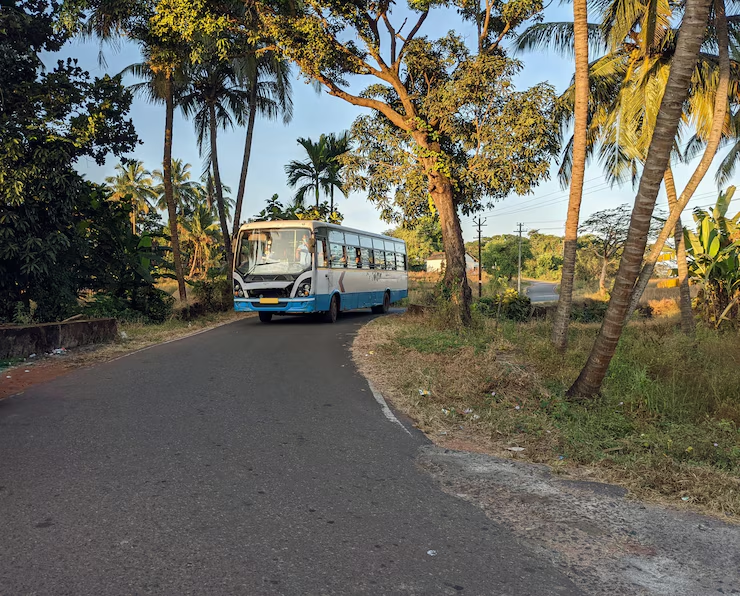Traveling to Africa is a dream for many adventurers, culture lovers, and wildlife enthusiasts. But one of the most common misconceptions is that it’s too expensive. The truth is, with proper planning, Africa can be one of the most budget-friendly travel destinations in the world. Whether you’re dreaming of safaris in Kenya, beaches in Zanzibar, or historical sites in Egypt, this guide will show you how to experience the beauty of Africa without breaking the bank.
1. Choose Affordable African Destinations
Not all African countries cost the same to visit. While some, like Botswana or South Africa, may cater more to luxury travelers, many countries offer incredible experiences at a fraction of the price. Consider these budget-friendly destinations:
- Kenya – Affordable safaris, vibrant cities, and beach escapes in Mombasa.
- Uganda – Lush landscapes and budget gorilla trekking options.
- Tanzania – Mount Kilimanjaro, Serengeti, and Zanzibar on a shoestring.
- Morocco – Culturally rich cities with affordable food and lodging.
- Egypt – History-packed adventures and budget accommodation options.
- Ghana – Friendly locals, accessible coasts, and low-cost experiences.

2. Travel in the Off-Season
Timing your trip is one of the easiest ways to save big. Traveling during the low or shoulder seasons means:
- Cheaper flights and accommodation
- Fewer tourists
- Better negotiation power with tour operators
Examples of off-seasons:
- East Africa: March–May and November
- Southern Africa: May–September
3. Be Flexible with Flights
International flights can be expensive, but some smart strategies include:
- Using tools like Skyscanner, Google Flights, and Momondo
- Booking at least 2–3 months in advance
- Traveling mid-week instead of weekends
- Choosing budget airlines for intra-Africa flights (e.g. Fly540, Fastjet)
4. Choose Budget Accommodations
Africa has many affordable lodging options beyond luxury hotels:
- Hostels and guesthouses
- Camping sites in or near national parks
- Eco-lodges and community-run stays
- Homestays for cultural immersion and cost savings
Booking sites like Booking.com, Hostelworld and Voyagearound offer filters for budget travel.
5. Use Public Transportation
Using public transit helps save money and gives you a local experience:
- Buses, minibuses (matatus, dala dalas), and shared taxis
- Ride-share apps like Bolt (in Kenya, Nigeria, and South Africa)
- Walking or cycling in safe areas
- Boda bodas (motorbike taxis) in East Africa (use with caution and a helmet)

6. Eat Like a Local
Skip the hotel buffet and dive into the local food scene:
- Street food: Try suya (Nigeria), chapati (Kenya), or zigni (Eritrea)
- Local markets: Buy fresh fruits, roasted maize, snacks
- Neighborhood restaurants: Called bukas, chop bars, or cafés
Meals at local spots often cost less than $5 USD.
7. Book Budget-Friendly Tours
You don’t need to splurge for unforgettable tours:
- Group safaris are cheaper than private ones
- Local operators often offer better deals than international agencies
- Book through travel forums, hostel desks, or Facebook groups
Try overland budget tours with providers like:
8. Travel with a Group
Traveling with friends or joining group trips can lower:
- Accommodation costs
- Transport expenses
- Tour and activity fees
You’ll also have people to split meals and taxis with—bonus!
9. Stay Safe Without Overspending
Safety doesn’t have to cost a fortune:
- Read local blogs, TripAdvisor, or Travel Advisories
- Book hostels or Airbnbs with multiple positive reviews
- Avoid traveling at night
- Use a money belt or anti-theft daypack
- Buy travel insurance that covers theft, accidents, and health
10. Take Advantage of Free Attractions
Many attractions in Africa are low-cost or completely free:
- Museums (entry often under $5)
- Markets, cultural festivals, and beaches
- Historical walking tours led by students or locals
- Nature trails and city parks
11. Use Travel Rewards and Discounts
Before booking, check for:
- Credit card reward programs (air miles, cashback)
- Student/youth discounts
- Travel deals on aggregator sites
- Work exchange platforms (e.g. Worldpackers or Workaway)
12. Be Aware of Visa Costs
Visa fees can add up, especially if you’re traveling across borders. Do this early:
- Check your country’s visa requirements for each destination
- Apply online via e-visa platforms
- Travel with passport photos for quick border processing
13. Travel Slow
Rather than rushing through many countries:
- Spend more time in one place
- Reduce transport and visa costs
- Enjoy deeper connections and richer experiences
You’ll save money and stress less.
14. Learn Basic Local Language
Knowing a few key words can help:
- Swahili in East Africa
- French in West/Central Africa
- Arabic in North Africa
- Portuguese in parts of Southern Africa
You’ll be more respected by locals and can negotiate better prices!
15. Final Thoughts
Planning Africa travel on a budget doesn’t mean sacrificing comfort or experiences. On the contrary, budget travel often leads to the most authentic, culturally rich, and meaningful adventures.
With a smart itinerary, local insight, and open-mindedness, you can:
- Explore vibrant cities
- Spot the Big Five on safari
- Taste new flavors
- Meet welcoming communities
- And witness nature at its rawest
All without draining your savings.
Ready to explore Africa on a budget? Let your journey begin with smart planning, a flexible spirit, and a hunger for unforgettable adventure.




